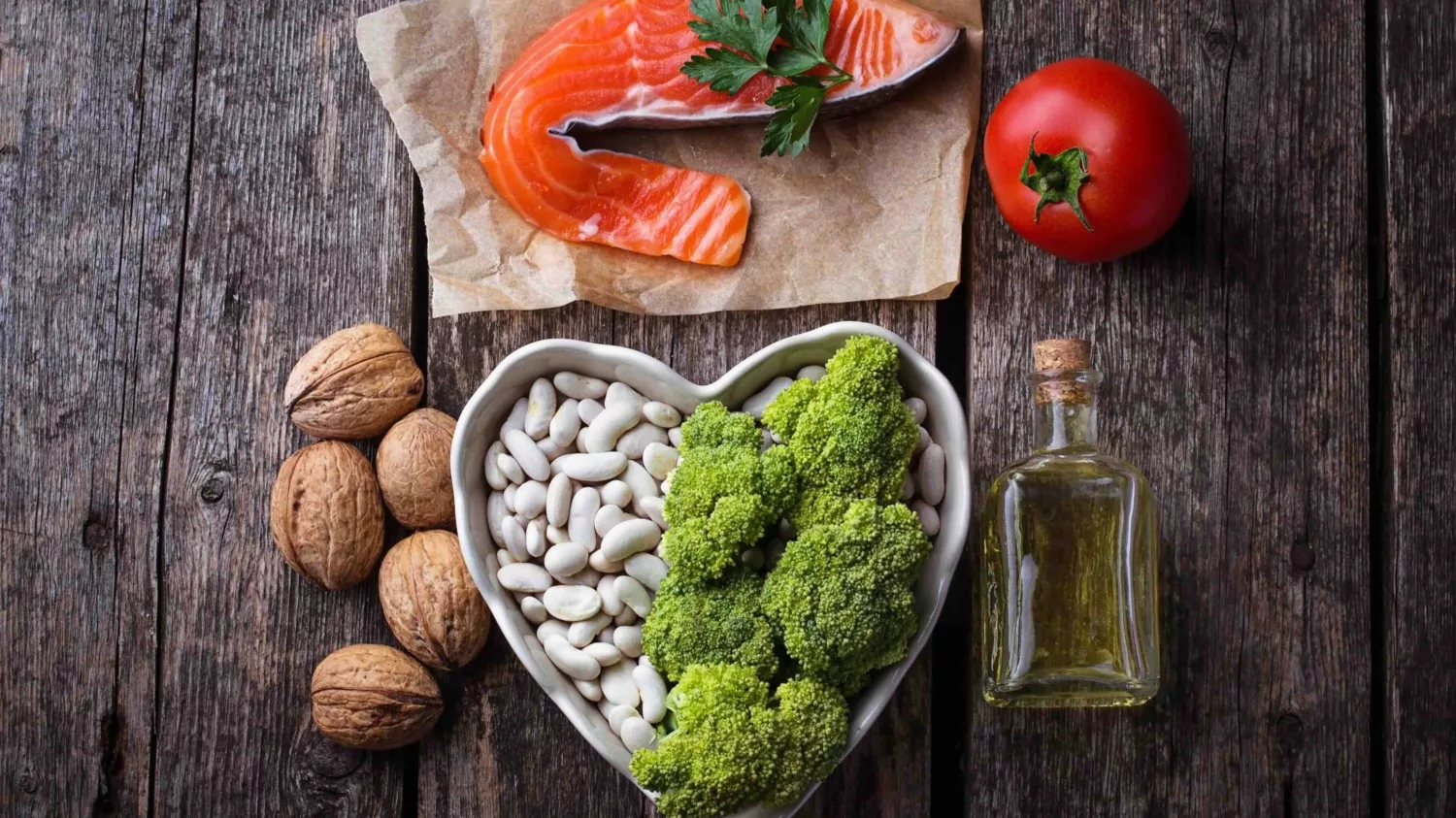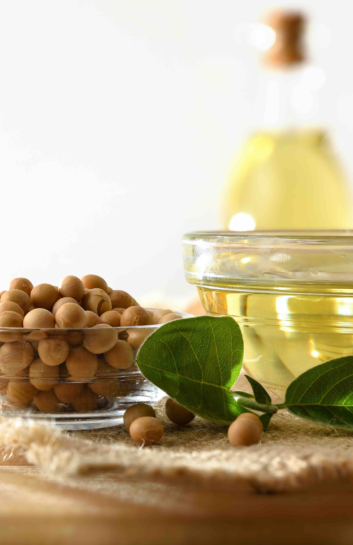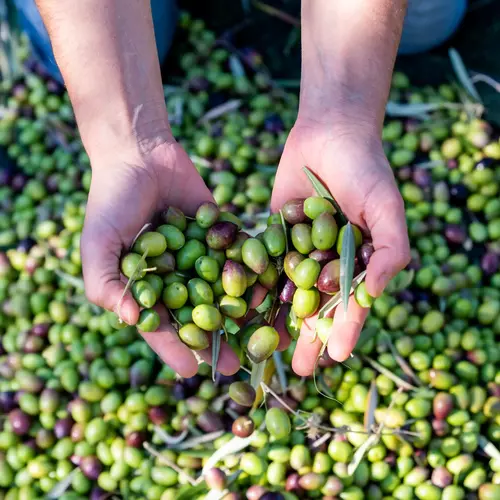
APRIL 11 , 2024
Discover how to take care of your heart with your diet
The heart is one of the vital organs of our body, as it never ceases to beat and function. Therefore, taking proper care of it is essential to maintain an optimal state of health. One of the most effective ways to do so is through our diet, by consuming heart-protective foods like, along with other factors that contribute to good cardiovascular health.
To achieve this, it is necessary to consume foods that, due to their properties and nutrients, could help reduce the risk of cardiovascular diseases and keep your heart in optimal condition. To this end, we have prepared a list of food groups that will help you care for and protect this vital organ with soybean oil health benefits and others tips you will need to improve your diet
Fruits and vegetables
Fruits and vegetables are fundamental in any healthy diet, as they are packed with vitamins, minerals, antioxidants, and fiber essential for cardiovascular well-being. Consuming them every day will help nourish your body from within, primarily benefiting your heart. Here are some tips.
Variety: Eat fruits and vegetables of different colors to get a wide range of nutrients.
Healthy snacks: Keep cut-up fruits and vegetables on hand to make them an easier option for snacking when you feel hungry or have cravings between meals.
Salads are a great way to include vegetables and fruits at every meal. You could include them in your meals.
Fish
Some fish such as salmon, tuna, sardines, mackerel, and herring are rich in Omega-3 fatty acids, which are known for their ability to reduce inflammation and maintain heart health. It's important to aim for at least two servings of fish per week.
You can achieve this by using different cooking methods, such as grilling or baking. Here's a recipe for Salmon and multigrain vegetables that you can find on our website.
Healthy fats
Healthy fats (monounsaturated and polyunsaturated), such as those found in Oli by Nutrioli® Olive Oil, walnuts, chia seeds, and avocado, are beneficial for cardiovascular health. These are called Omegas, so part of the soybean oil health benefits are found in healthy fats. There are three types of omegas, which are described below.
Omega-3
It is an essential fat, as your body cannot naturally produce it, so you must include it in your diet. This fat helps increase good HDL cholesterol and reduce triglycerides, which are a type of fat that clogs the arteries.
Omega-3 is found in greater quantities in fish such as tuna, salmon, trout, herring, and sardines. Other foods rich in Omega-3 are flaxseed, walnuts, and Nutrioli soybean oil. Other of the soybean oil health benefits and reasons why it is advisable to add it to your meals include:
Omega-6
It is an essential fat, which helps reduce both types of cholesterol. It is abundant in vegetable oils such as Nutrioli® soybean oil, another soybean oil health benefits. Furthermore, it can also be found in cereals, eggs, and poultry. Unlike omega-3, omega-6 is easier to obtain from various foods.
Omega-9
It is a non-essential fat, as your body has the capacity to produce it. These fats help reduce bad LDL cholesterol. Omega-9 is found mainly in vegetable oils, olives, avocados, and nuts.
Include Omegas 3, 6 & 9 valuable fatty acids, by cooking with Nutrioli® 100% pure soybean oil. One of soybean oil's health benefits is that it provides omegas 3, 6, and 9, without cholesterol due to its vegetable origin, and it contains no trans fats due to its advanced manufacturing process, which promotes cardiovascular health.
Additionally, it contains vitamin E, which enhances the function of Omega-3 and Omega-6, improving their absorption and maximizing their benefits for cardiovascular health.
Seeds
Add walnuts, almonds, or pistachios (without added salt) to your salads, cereals, or yogurt. Also, use them as snacks. Great source of omega 3 and vitamin E, which reduces inflammation related to heart disease and improves cholesterol levels.
Avocado
This fruit can be an excellent option to replace mayonnaise in sandwiches and salads. It reduces LDL cholesterol levels (bad fats) in the blood, helps control blood pressure, maintains a regular heart rhythm, and is delicious.
Soluble fiber
Soluble fiber is known to reduce blood cholesterol, benefiting heart health. You can find it in foods such as oatmeal, legumes, whole grains, fruits, and vegetables. When soluble fiber dissolves in water, it forms a gelatinous material that improves intestinal health and helps control blood glucose levels.
Additionally, it provides a feeling of satiety, resulting in lower and more stable glucose peaks, thus contributing to achieving a healthy weight. The recommended daily intake of fiber is 38 grams for men and 25 grams for women.
Lean protein
To maintain an optimal heart-healthy diet, include lean sources of protein such as poultry, fish, legumes, and low-fat dairy products:
Skinless chicken: Prefer skinless chicken over fried or processed chicken.
Turkey: Turkey is an excellent lean protein option that you can enjoy in sandwiches or salads.
Legumes: Beans, lentils, and chickpeas are rich in protein and fiber, making them a healthy choice.
Fish: Including fish in your diet provides lean protein and omega-3s.
On our website, you can find many recipes to include lean protein, and they are delicious. One option is our Chicken with Balsamic Sauce and Raspberries recipe.
Exercise
The heart, being a muscle, it is important to protect it and keep it strong by maintaining an active lifestyle. This includes cardiovascular exercise and strength training lasting at least 40 minutes a day for at least 3 days a week. Remember, the key to exercise is to do what you enjoy and what fits your lifestyle.
Hydration
Staying hydrated is essential for our body, particularly for cardiovascular health. Plain water is the best option for hydration, though you can also opt for herbal teas and unsweetened teas if you're not a fan of plain water. Additionally, vegetables contain a lot of water. The important thing is to stay hydrated at all times.
Plan Your Meals
Keeping a weekly meal plan is an effective strategy to ensure that your diet is rich in foods that care for your heart, in addition to allowing you to control the ingredients and portions you consume.
During your planning, you can include meal prep, which involves preparing your meals in advance and putting them in containers with the necessary portions ready to eat. Visit your nutritionist or health specialist to help you plan correctly and care for your heart.
Foods to Avoid
Just as it is important to consume the foods we present in this blog, we also recommend swapping others, as they can damage your heart health. Reduce salt intake, as excessive consumption can increase blood pressure, while excessive sugar is linked to obesity and other chronic degenerative diseases.
A simple way to avoid excessive salt and sugar consumption is to prepare your meals at home, allowing you to control the amount you add to your dishes. You can also enhance the flavors of your food by using spices and herbs, you'll be amazed at the flavors you can create with these ingredients.
By including heart-protective foods in your daily diet and cooking healthy, you will help improve your overall well-being and maintain a healthy heart throughout your life. Remember to consult with a health professional before making changes to your diet for guidance and recommendations appropriate to your overall health.
Also, visit our blog, where you will find many more recommendations and tips like this one to continue living a healthy life and caring for your heart.

 Go to Nutrioli MX
Go to Nutrioli MX











